
Environmental health works behind the scenes to keep Soldiers ready
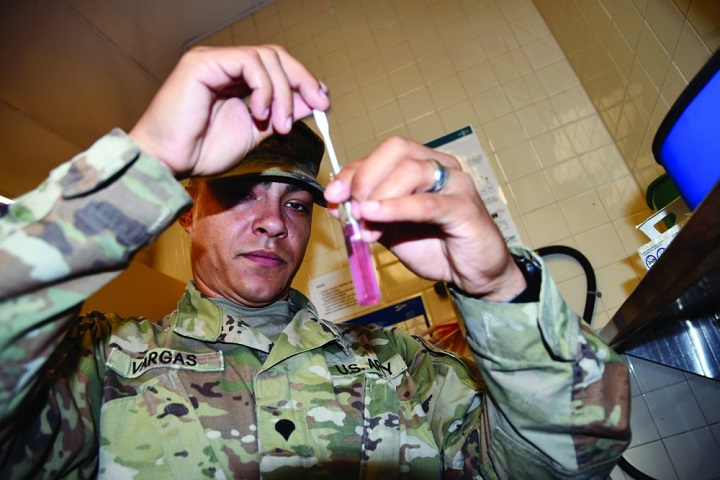
Army Spc. Johnathan Vargas from Environmental Health at Kenner Army Health Clinic conducts a water test using a LaMontte water quality kit at the Fort Lee dining facility while conducting an inspection recently. (U.S. Army photo by Lesley Atkinson)
PROVIDENCE, R.I. — Readiness is the Army and Environmental Health mission and it really starts within prevention.
“I didn’t know what the extent of my job would entail when I came to Environmental Health,” said Army Spc. Johnathan Vargas, who is a preventive medicine specialist at Kenner Army Health Clinic Environmental Health. “Most people don’t understand all that we do. We work on a lot in the background of many things.”
“Many people don’t know that a huge percentage of Soldiers’ injuries are disease and non-battle injuries,” said Vargas. “Those are injuries sustained through illness and diseases; not being shot or getting blown up by an improvised explosive device. We play a huge role to make sure everyone is healthy while deployed and provide education on what it takes to stay healthy.”
Kenner’s EH section is one section out-of-five areas in the Preventative Medicine Department. On the EH team are a mix of military and civilian employees who conduct inspections, food safety training, water sampling and entomology services.
Each quarter, the department inspects 80-90 facilities on Fort Lee. The inspections are 100 percent unannounced and they inspect all dining facilities, food vendors, mobile trucks, Child Development Centers, gyms, barbers and beauty shops.
“We want to get a snapshot of the facility as it is without any preparation for employees to remediate what might be wrong,” said Vargas. “If there is an issue we want to be able to catch it because they might continue to do the deficiency regardless of our recommendation. They might fix it before we get there and then revert to their normal operation.
“We mostly look in the kitchens and look for anything that can cause a health hazard now or down the line,” he continued. “If the contents are out of their original packaging, we make sure the food is properly labeled. The item needs to have its common name with time and dates including when it was received, opened, and expired. For example, it would be hard to tell the difference between blue cheese and ranch dressing. It is important to have everything labeled correctly. Even though it smells and looks good doesn’t mean the item isn’t contaminated.”
They work diligently to prevent failed inspections by teaching personnel how to prevent illnesses.
“I have had to fail a few inspections due to lack of training, which is one of the biggest issues,” said Vargas. “It’s important for someone to be food-safety-certified on the premises at all times.” This is a food and beverage safety training and certificate program administered by the National Restaurant Association. There are other entities that provide certifications as well.
Another service offered by EH is collecting and identifying mosquitos and ticks for disease testing. Ticks are brought in using tick kits that are provided by the clinic, compliments of Army Public Health Command. Inside the kits are two forms that are to be filled out by the beneficiary and submitted to Preventive Medicine. EH picks up the tick samples, logs them, and sends them to APHC for testing. If a sample comes back positive then EH notifies the epidemiologist who then contacts the beneficiary of the positive sample.
“Many people don’t realize that we give out tick kits to the clinics,” Vargas added. If someone is bitten by a tick on-or-off post we encourage them to bring it in to be tested. This helps them and also gives the post data on what species of ticks are in the area and what disease they might be carriers of.
Mosquito surveillance is conducted every summer on Fort Lee. EH tests for mosquitoes carrying diseases by placing traps that collect mosquitoes using a battery and a fan. For mosquito larvae, they place other kinds of traps. These work by placing water inside of a cup and suspending a velour strip (inside) so that mosquitoes can lay their eggs.
Another EH function is barracks inspections where they look for overall sanitation – for example water leakage in the pipes. Evidence of pests (insects) like bedbugs and cockroaches are part of the sanitation inspection. They even inspect the ice machines; an area that may otherwise be forgotten.
On top of all the inspections they teach field sanitation. The Field Sanitation Team is a requirement by a command to ensure the unit abides by all preventative medicine regulations. They complete water trailer inspections as well as teach others how to implement the same rules.
“We can’t be everywhere,” Vargas said. With EH training Soldiers in field sanitation, they have the tools to make good preventive medicine choices.
“We are not bad people,” he explained. “There is a stigma around the Army when they see preventative medicine; their like ‘oh they are here.’ We are here to make sure everyone is following the rules so no one will get sick because this is our main mission.”
Disclaimer: Re-published content may have been edited for length and clarity. Read original post.
Sports drinks: What are you really putting in your body?
Article
6/27/2018
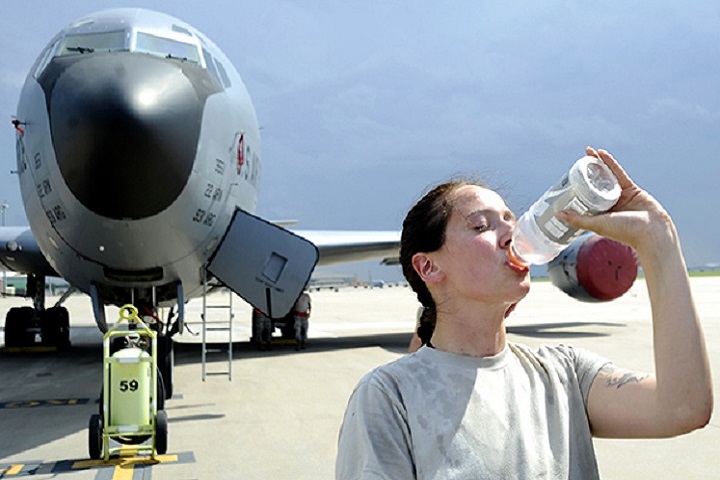
In general, sports drinks are typically a calculated blend of carbohydrates, electrolytes and water
Five tips to improve men's health
Article
6/12/2018

Taking preventive steps and making changes to your lifestyle can improve your health
Breaking down anxiety one fear at a time
Article
6/5/2018

Generalized anxiety, panic disorder, and anxiety related to PTSD are common disorders. In fact, an estimated 31 percent of U.S. adults experience anxiety at some point in their lives; one marine discusses his journey.
Servicemembers demonstrate grace under fire
Article
5/21/2018
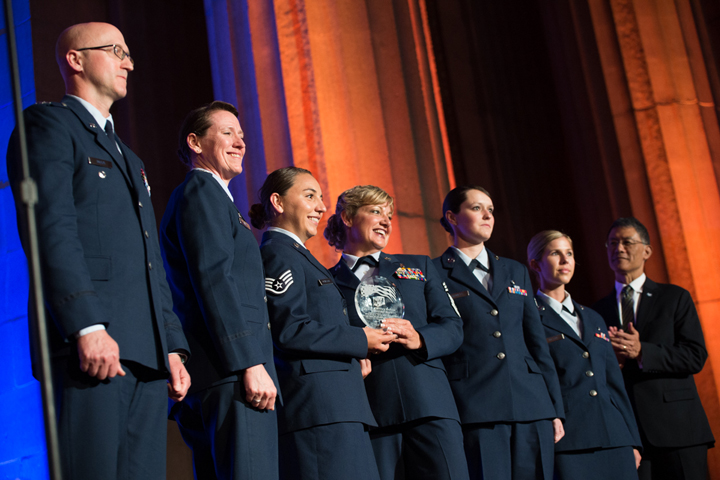
Five honorees celebrated at the 2018 Heroes of Military Medicine Awards Ceremony, including the Airmen for their heroic life-saving efforts during the tragic Las Vegas shooting on Oct. 1, 2017.
Getting tested for STIs is an 'important part of sexual health'
Article
4/26/2018
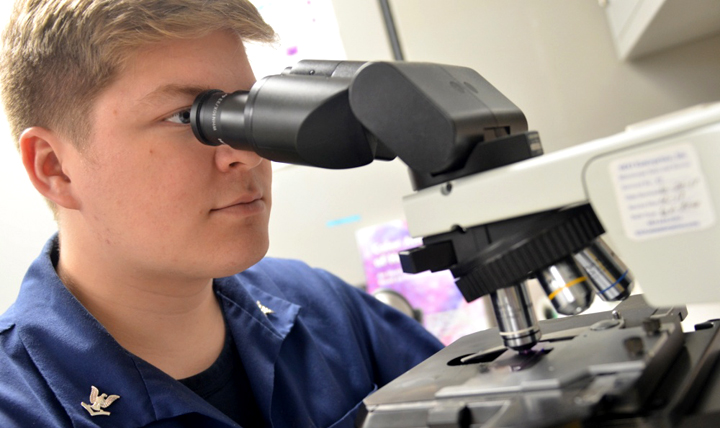
Chlamydia and gonorrhea are two of the most common sexually transmitted infections in the United States. Taking preventive steps, like getting tested and practicing safe sex, can help reduce risk of infection or spreading the infection to others.
Ready, set, focus: Finding calm in a storm through the power of breathing
Article
4/23/2018
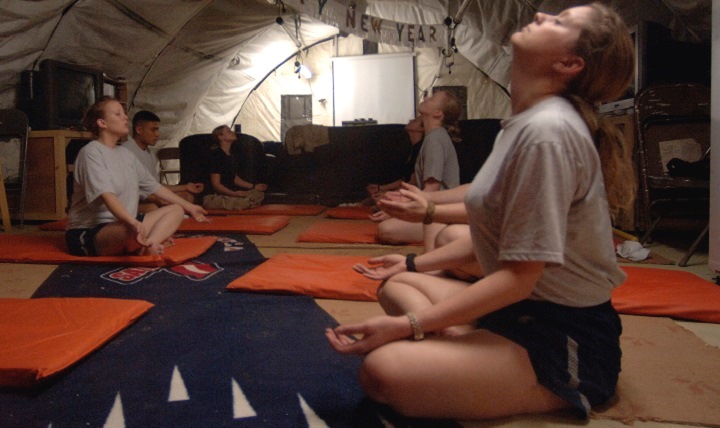
‘Mindful minutes’ and deep breathing help on the job, airmen say
Deep vein thrombosis: What you need to know
Article
4/9/2018

Everyone’s potentially at risk, vascular surgeon says
Eat an apple a day, but don't keep the dentist away
Article
3/27/2018

Good oral health takes more than brushing teeth and flossing – it also requires proper nutrition
New DoD educational podcast series promotes better health
Article
3/5/2018

The instructional podcasts highlight health technology and offer tips, tools and techniques to help improve the lives of those in the military community
Pediatric care in the military rated 'excellent' but can improve
Article
2/27/2018
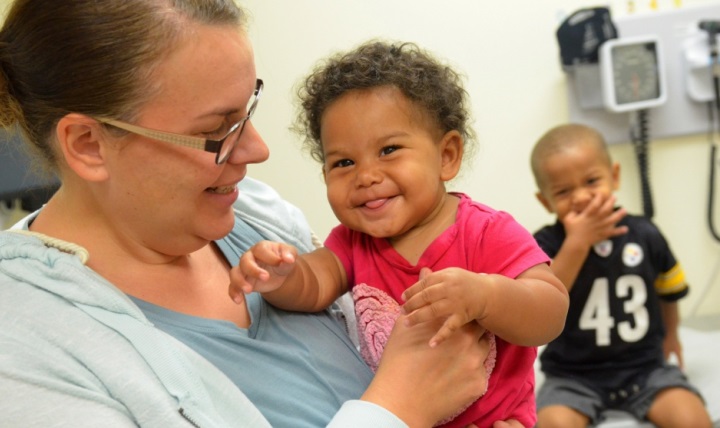
Experts say pediatric care within the Military Health System is excellent as they strive to improve and provide top-quality care for military children
Focus on prevention … not the cure for heart disease
Article
2/21/2018

Many heart health problems can be avoided
‘Kissing disease’ exhausting, but it strikes only once
Article
2/15/2018

Mononucleosis: Learn how virus spreads, who’s most vulnerable
Rocky and Elmo want providers to "Watch. Ask. Share."
Article
2/12/2018

How DHA teamed with Sesame Street to help care for military families
Caring for skin goes deeper than applying lotion
Article
2/6/2018
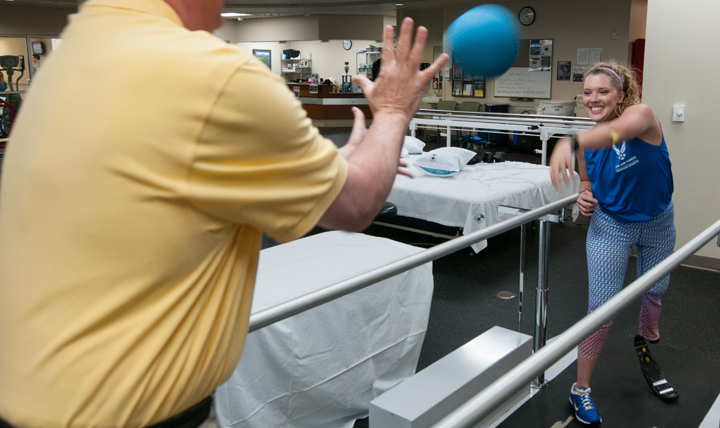
The many critical roles of a military dermatologist
2018 #ColdReadiness Twitter chat recap: Preventing cold weather injuries for service members and their families
Fact Sheet
2/5/2018
To help protect U.S. armed forces, the Armed Forces Health Surveillance Branch (AFHSB) hosted a live #ColdReadiness Twitter chat on Wednesday, January 24th, 12-1:30 pm EST to discuss what service members and their families need to know about winter safety and preventing cold weather injuries as the temperatures drop. This fact sheet documents ...


































No hay comentarios:
Publicar un comentario